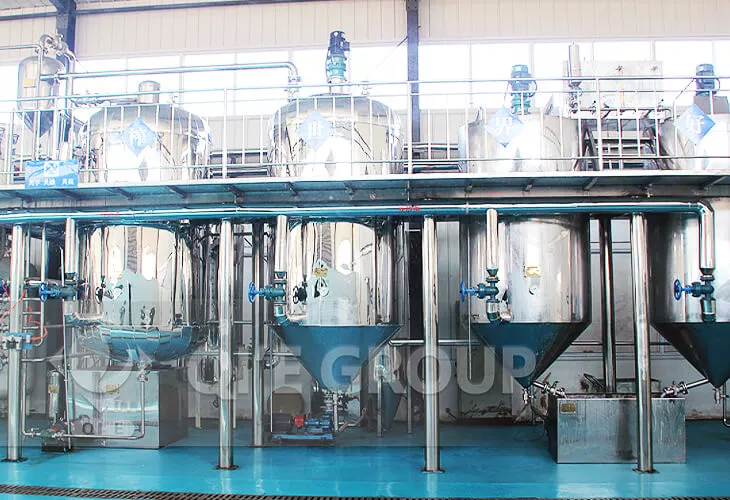
Modern soybean oil plants are not just for processing soybeans. With advanced technology and flexible design, these facilities can efficiently process a wide range of oilseeds, including peanuts, sunflower seeds, and rapeseed. This versatility makes them an essential choice for businesses aiming to meet diverse market demands while maximizing profitability.
Whether you're running a small-scale plant serving local markets or a large industrial facility targeting global distribution, a customizable soybean oil plant offers the flexibility needed to optimize production. By adapting to different oilseed types and adjusting output capacities, these plants ensure high-quality oil production that aligns with evolving consumer preferences and industry standards.
Soybean oil plants are designed to handle multiple oilseeds, each with unique characteristics and applications. Here's a quick overview of the most commonly processed oilseeds:
| Oilseed | Average Oil Yield (%) | Common Applications |
|---|---|---|
| Soybean | 18-22% | Cooking oil, food manufacturing, animal feed |
| Peanut | 45-55% | Nutritionals, confectionery, cosmetics |
| Sunflower Seed | 40-50% | Edible oil, biofuel, livestock feed |
| Rapeseed (Canola) | 35-45% | Industrial oil, biodiesel, food products |
These figures highlight the efficiency and adaptability of modern soybean oil plants, making them a valuable asset for any business looking to expand its product portfolio.

Many companies have successfully leveraged the flexibility of soybean oil plants to meet specific market needs. For example, a mid-sized processor in Southeast Asia expanded its operations by incorporating peanut and sunflower seed processing into its existing soybean oil facility. This move allowed them to offer a broader range of oils and increase their market share within the region.
Similarly, a large-scale industrial plant in Europe integrated rapeseed processing to support the growing demand for sustainable biodiesel. By customizing their production lines, they were able to achieve a 25% increase in overall output without compromising on quality or efficiency.
These success stories demonstrate how adaptable and scalable soybean oil plants can be when properly configured to suit individual business goals.

Compared to traditional oil plants, which often have fixed configurations and limited processing capabilities, soybean oil plants offer unmatched flexibility. They can be tailored to handle different oilseeds, adjust output volumes, and integrate with various downstream processes such as refining and packaging.
This level of customization ensures that your plant can respond quickly to changing market conditions, whether it's a surge in demand for organic oils or a shift toward healthier alternatives. Additionally, the ability to process multiple oilseeds allows for better resource utilization and cost optimization.
As global demand for healthy and sustainable oils continues to rise, the role of versatile oil processing facilities becomes even more critical. By investing in a soybean oil plant with multi-seed processing capabilities, you're not only future-proofing your business but also positioning yourself as a leader in the industry.

Are you ready to expand your oil production capabilities and meet the growing demand for high-quality, versatile oils? Our team of experts is here to help you design and implement a customized soybean oil plant that fits your unique needs and goals.
Whether you're looking to process new oilseeds, scale up your current operations, or explore sustainable solutions, we provide the technical support and industry insights you need to succeed.
Discover your ideal solution today – contact us now for a free consultation and tailored quote.

